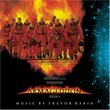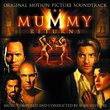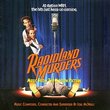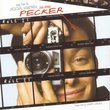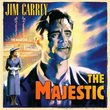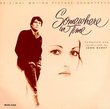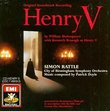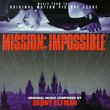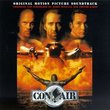| All Artists: John Williams Title: Munich [Original Motion Picture Soundtrack] Members Wishing: 2 Total Copies: 0 Label: Decca Original Release Date: 1/6/2006 Re-Release Date: 12/27/2005 Album Type: Soundtrack Genres: Pop, Soundtracks Style: Number of Discs: 1 SwapaCD Credits: 1 UPC: 602498791424 |
Search - John Williams :: Munich [Original Motion Picture Soundtrack]
![Munich [Original Motion Picture Soundtrack]](https://nationalbookswap.com/cd//l/54/4554/814554.jpg) | John Williams Munich [Original Motion Picture Soundtrack] Genres: Pop, Soundtracks
Steven Spielberg directs an international cast in Munich, a suspense thriller set in the aftermath of the massacre of eleven Israeli athletes at the 1972 Summer Olympics. Five-time Academy Award winner John Williams lends ... more » |
Larger Image |
CD DetailsSynopsis
Album Description Steven Spielberg directs an international cast in Munich, a suspense thriller set in the aftermath of the massacre of eleven Israeli athletes at the 1972 Summer Olympics. Five-time Academy Award winner John Williams lends his musical talents to the film by composing and conducting the magnificent soundtrack. For Munich, Williams has created some of the most powerful and enduring film music of our time. With his sweeping score, he puts forth a feeling of intense emotion that takes the listener on a thought-provoking journey. With a career spanning over four decades, Williams has received 46 Oscar nominations (more than any living person) and has won 5 Oscars, 18 Grammys, 4 Golden Globes, 4 Emmys, and 6 BAFTA Awards. Similarly Requested CDs
|
CD ReviewsScore #4 for 2005 by John Williams. Brian Litton | 01/31/2006 (5 out of 5 stars) ""Munich" is not a "common" John Williams score with sweeping melodies. It isn't instantly memorable like his other work, but is every bit as effective as anything he's ever written. It's a wonderful score, lending great power to the images that Steven Spielberg uses to tell his story. I'm continually amazed by Mr. Williams's ability to adapt his style to each project. Another notable fact is that "Munich" is his fourth score during 2005, following "Revenge of the Sith," "War of the Worlds" and "Memoirs of a Geisha." No tracks really stand out (the work as a whole is very consitent), and this may not be a CD to listen to over and over again. But its effectiveness and power make it a wonderful part of any John Williams collection." Another Williams gem! Nicholas A. Ziinojr | ridge, new york United States | 11/01/2006 (5 out of 5 stars) "John Williams'superb score for "Munich" pulls off something rare-it's better than the movie.This is the maestro at his full-throttle best. The score is intense,powerful,thrilling,and magnificently performed by the LA Recording Arts Orchestra under the master's superb baton. This is his best work since "Saving Private Ryan"" Should Have Taken the Academy Award! Media Lover | 09/27/2006 (5 out of 5 stars) "Well, I must say, Williams got ripped off AGAIN this year, with yet another beautiful score misunderstood. I sometimes wonder when the Academy will get a clue and start giving awards where they are do.
As far as the score goes, get it. It is a passionate tribute to it's story, and reminds me strongly of some of the best Williams scores. Echoes of Empire of the Sun, Seven Years in Tibet, Schindler's List and even Revenge of the Sith cover this album. On top of these wonderful stylistic comebacks is a wealth of new material, (meaning extremely original compositions) that cannot be passed up. Support Williams, and buy the score that should have won." |

 Track Listings (18) - Disc #1
Track Listings (18) - Disc #1